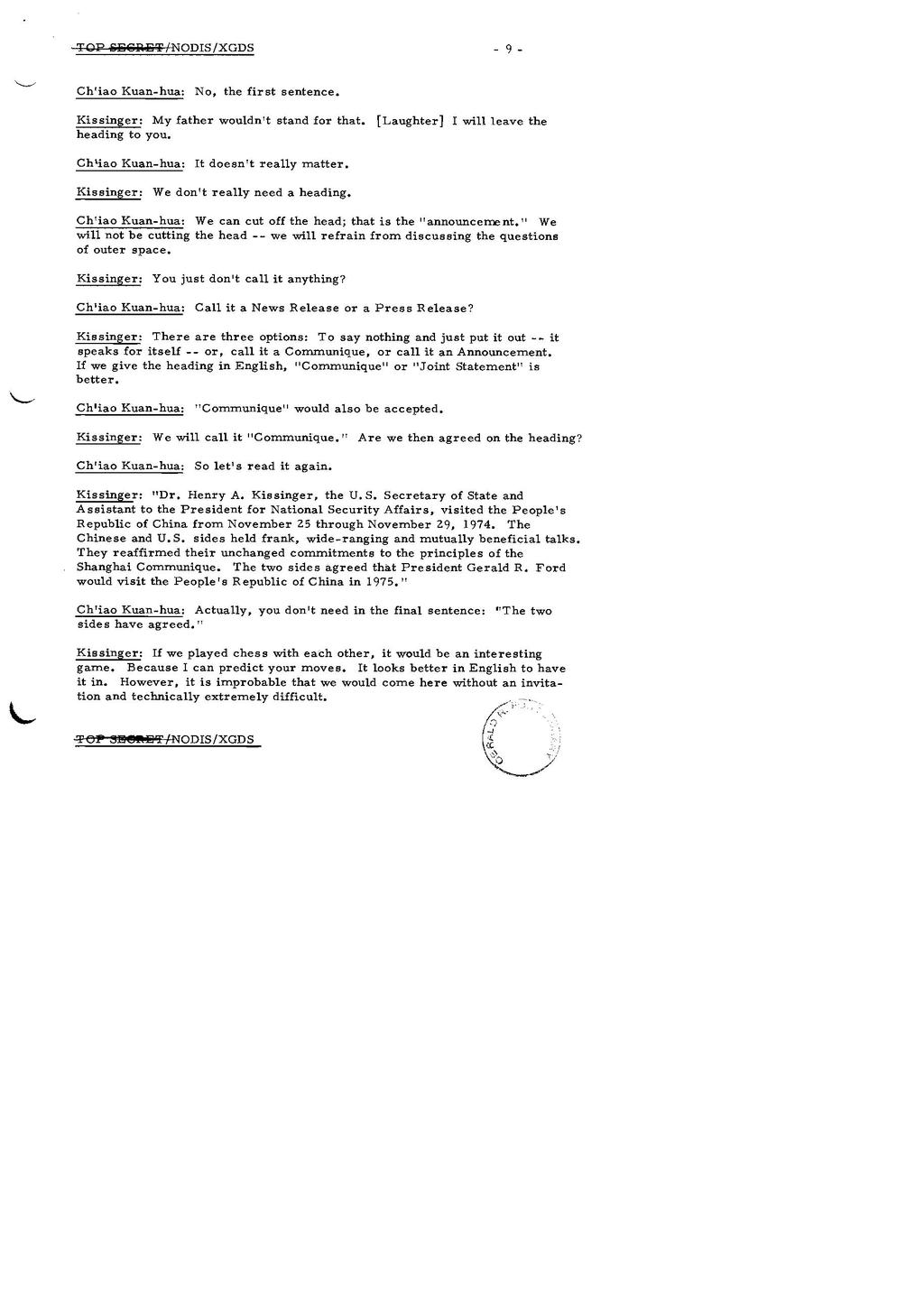Ch'iao Kuan-hua: No, the first sentence.
Kissinger: My father wouldn't stand for that. [Laughter] I will leave the heading to you.
Ch'iao Kuan-hua: It doesn't really matter.
Kissinger: We don't really need a heading.
Ch'iao Kuan-hua: We can cut off the head; that is the "announcement." We will not be cutting the head -- we will refrain from discussing the questions of outer space.
Kissinger: You just don't call it anything?
Ch'iao Kuan-hua: Call it a News Release or a Press Release?
Kissinger: There are three options: To say nothing and just put it out -- it speaks for itself -- or, call it a Communique, or call it an Announcement. If we give the heading in English, "Communique" or "Joint Statement" is better.
Ch'iao Kuan-hua: "Communique" would also be accepted.
Kissinger: We will call it "Communique." Are we then agreed on the heading?
Ch'iao Kuan-hua: So let's read it again.
Kissinger: "Dr. Henry A. Kissinger, the U. S. Secretary of State and Assistant to the President for National Security Affairs, visited the People's Republic of China from November 25 through November 29, 1974. The Chinese and U.S. sides held frank, wide-ranging and mutually beneficial talks. They reaffirmed their unchanged commitments to the principles of the Shanghai Communique. The two sides agreed that President Gerald R. Ford would visit the People's Republic of China in 1975."
Ch'iao Kuan-hua: Actually, you don't need in the final sentence: "The two sides have agreed."
Kissinger: If we played chess with each other, it would be an interesting game. Because I can predict your moves. It looks better in English to have it in. However, it is improbable that we would come here without an invitation and technically extremely difficult.
TOP SECRET/NODIS/XGDS
